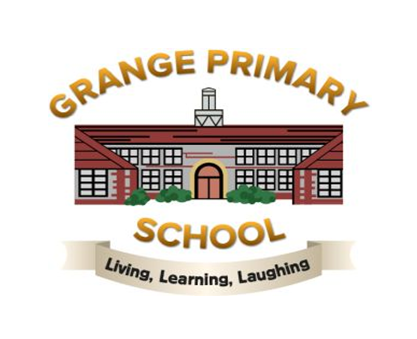Maths
At Grange Primary School our core belief is that children’s chances of success are maximised if they develop deep and lasting understanding of mathematical procedures and concepts. We seek to ensure our pupils acquire a deep, long-term, secure, and adaptable understanding of the subject inspiring the mathematicians of the future. We endeavor to enthuse and ignite a love of math through embedding maths throughout our curriculum. At Grange pupils experience maths in a variety of environments and formats; daily maths lessons, active maths sessions, use of the Imagination Station and university workshops to name a few. Developing pupil’s confidence in maths is key and pupils are provided with opportunities to make valuable links in their learning based on prior learning, personal experiences and across subjects. Through igniting what children already know we support the processing of information and aid the link between working and long-term memory. Engaging our community is key, parents are invited in once a term for maths workshops to support with the learning at home. This year Grange have embarked on an exciting journey working with NCTEM East Midlands Maths Hub on their Mastery Readiness project, we can’t wait to share our journey with you!
Aims (Intent)
Living
At Grange, we encourage the children to understand the nature and purpose of mathematics in addition to the abstract. We recognise that Maths is an interconnected discipline and pupils should be able to move fluently across representations of mathematical ideas. Often our maths is taught with strong cross-curricular links that ignite curiosity and prepare children to apply their maths to everyday life. We enable pupils to be numerate, creative, independent, inquisitive and confident to develop their mathematical skills to the full. At Grange, using mathematical language is crucial to developing mathematical thinking and deepening conceptual understanding. Our maths classrooms are language rich with emphasis given to sharing key vocabulary, which is referred to throughout. Whilst children unravel reasoning problems, they will articulate their thinking. Questions are carefully planned for key points in the lesson to deepen mathematical reasoning and understanding.
Learning
At Grange, our curriculum is knowledge engaged and cumulative; with the most fundamental concepts (such as place value) being taught at the beginning of each year group. With foundational knowledge, particularly proficiency in number secured first, we can then use connections to build mathematical fluency and conceptual understanding throughout the school year. This approach means that curriculum content is taught in considerable depth from an early stage. Grange promotes confidence and competence with numbers and the number system We focus on developing the ability to solve problems through decision-making and reasoning in a range of contexts. We develop practical understanding of the ways in which information is gathered and presented as well as exploring features of shape and space and develop measuring skills in a range of contexts.
Laughing
We believe children learn best when the lesson is adapted to their learning style. We endeavour to enthuse and inspire future mathematicians through our active maths lessons, outdoor learning, the imagination station, our school STEM lab and trips. Our learning does not stop, further opportunities to explore maths are provided through university workshops and whole school experience days throughout the year.
Multiplication Check
Since June 2020 there has been a national statutory test for Y4 children called the ‘Multiplication Tables Check’ (MTC). The test judges how well each child knows their multiplication tables up to 12 x 12, which is the expected standard by the end of Year 4.
The test will be administered in the summer term and will involve an online test of 25 multiplication questions. The results will then be shared with us to help us best support the children, as they progress through the Y5 and Y6 maths curriculum.
The resources in this section below contain information about MTC and how you can help to support your child's times table learning at home.
